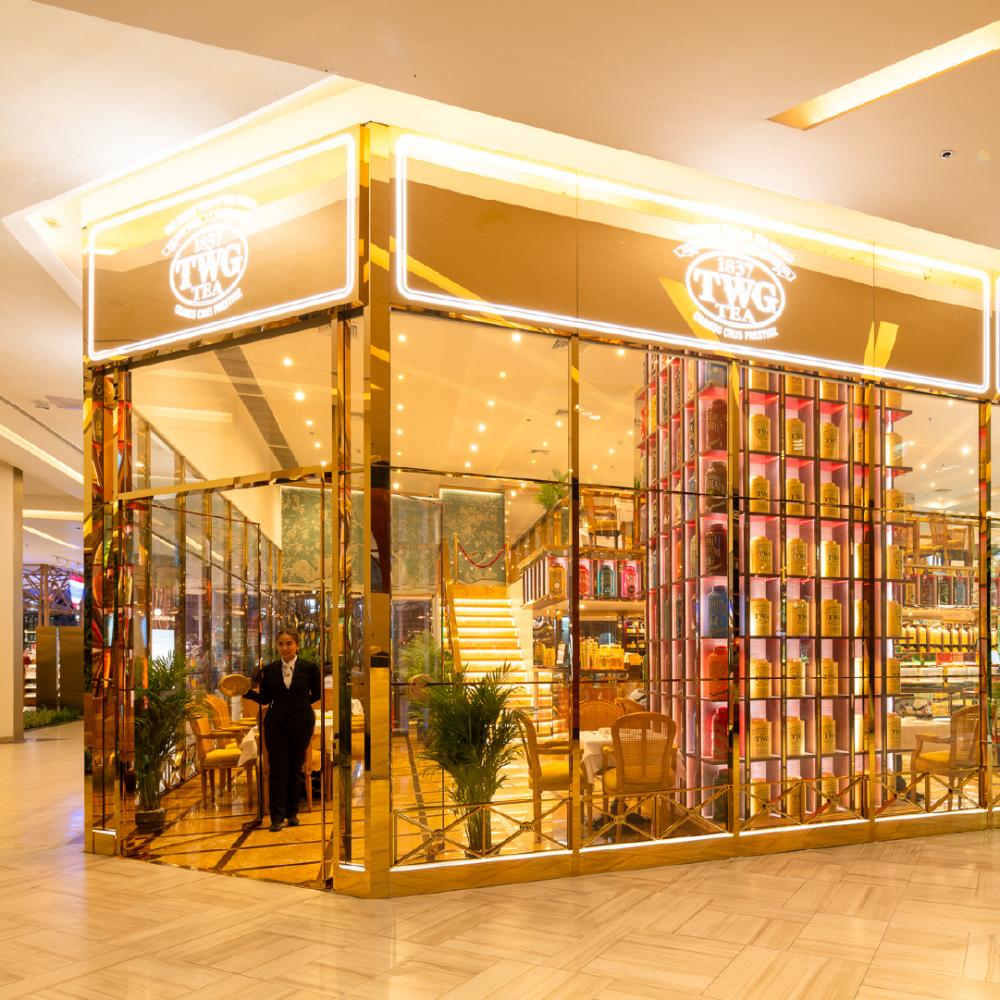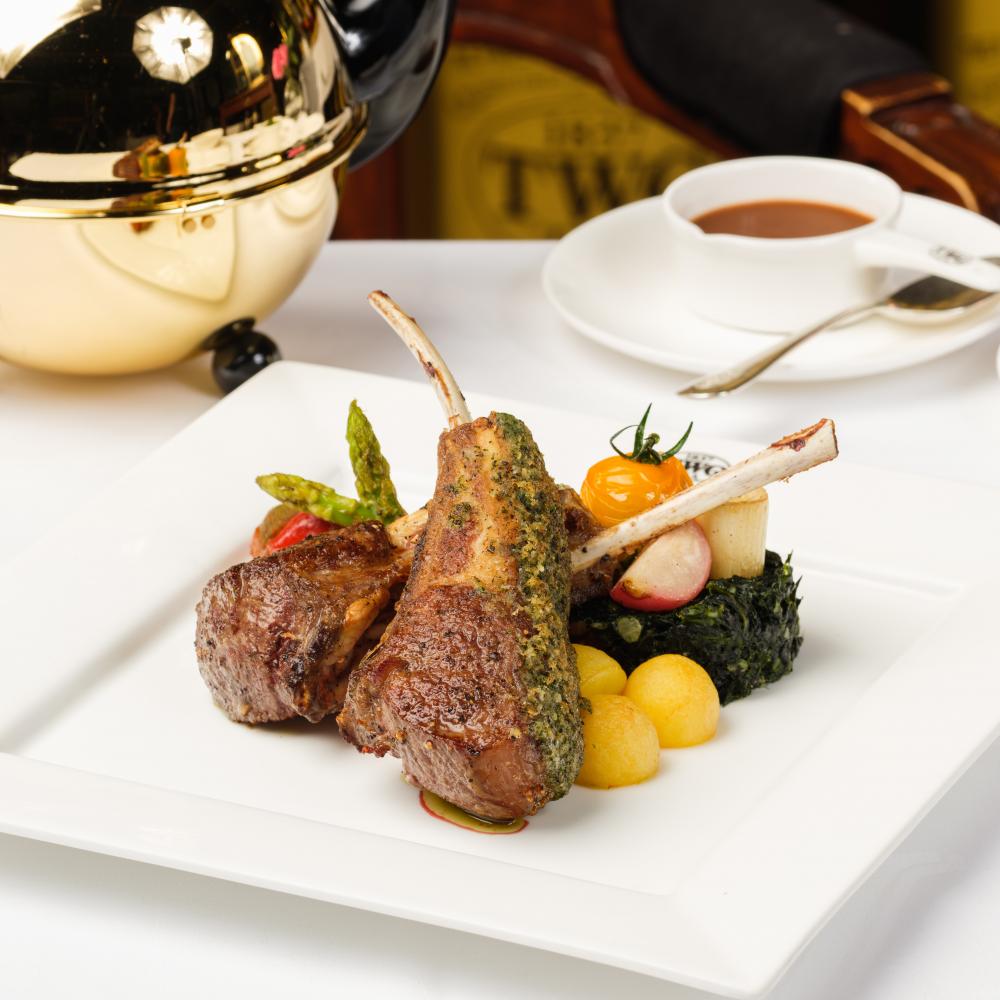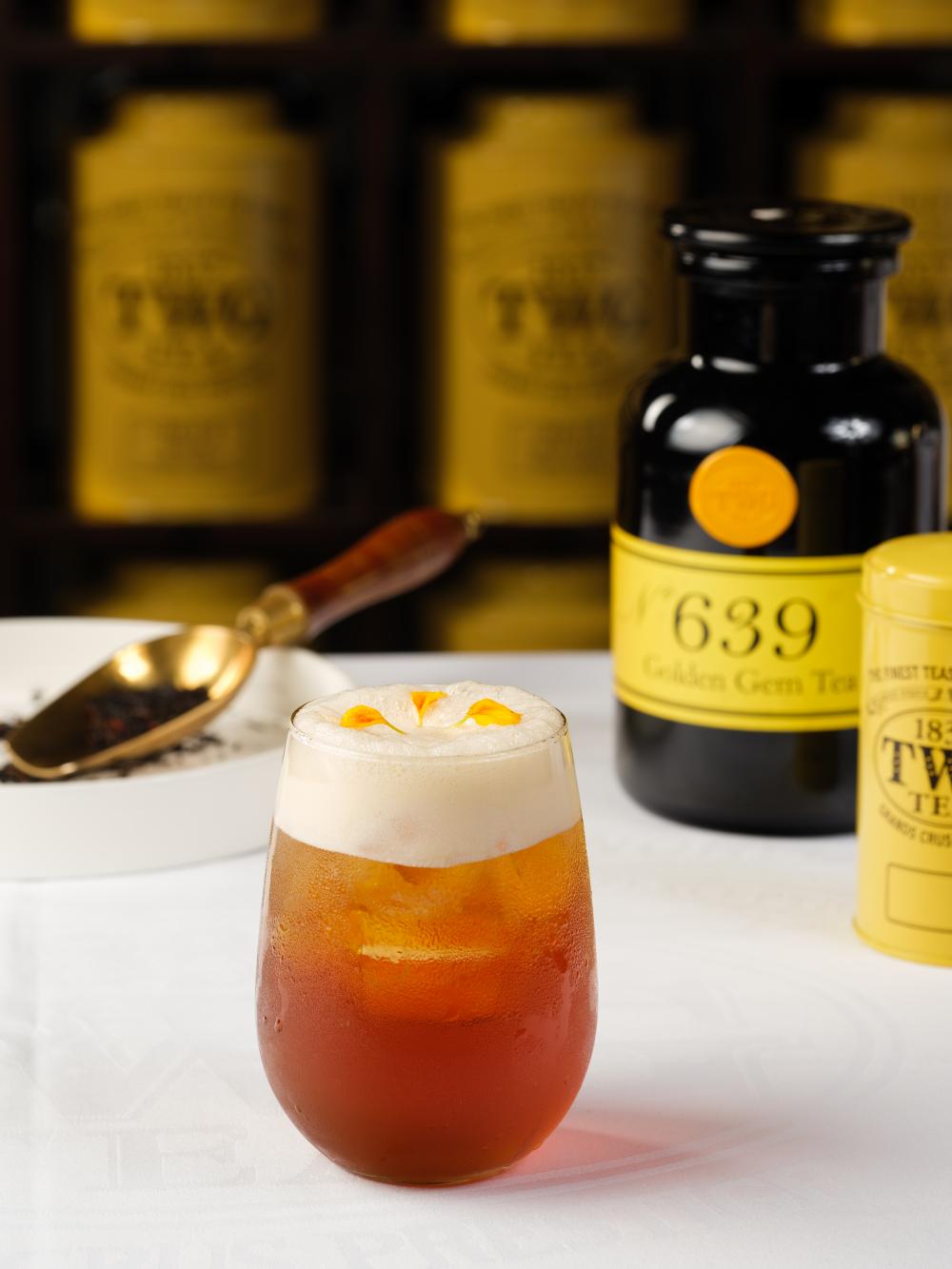People in the retail business usually say TWG Tea is a master of marketing.

As a brand that originated in Singapore less than two decades ago, TWG has managed to run abreast with many of Europe's established, century-old teahouses in terms of positioning, product varieties, popularity and business expansion.
Today the company, which labels itself "the world's finest luxury tea brand", offers more than 1,000 tea blends and has grown to have 80 boutiques in 22 countries across the globe.
This fact is amazing, but it couldn't be more irrelevant to me.
To a food critic, the only thing that matters is what is appreciated by the taste buds and gastronomic sense.
And for that, TWG, which also features a sizable collection of all-day-dining food and pâtisseries, never fails to impress.
Since it first arrived in Thailand in 2013, the brand has proven, again and again, to be a real virtuoso of fine taste and sublime details.
My casual lunch with friends at its newly-relaunched Tea Salon and Boutique at Siam Paragon last week was more proof.
The shop now occupies a large, glass-wrapped corner space unit with a mezzanine floor and a seating capacity of 54 guests.

The new decor concept continues the brand's luxurious identity through a sophisticated gold luminosity -- gleaming but not gaudy.
A tasteful marriage of modernity and inspiration from a voyage to discover the indigenous origins of teas, the furnishing includes an iconic TWG Tea wall, yellow Italian marble floors, hardwood counters, and an aesthetic hand-painted panel illuminated by natural lighting.
Next to the retail section on the ground floor is a large tea bar and pâtisserie counter, which offers a new takeaway tea concept. Customers can choose from 108 options of tea blends, which come in a shining gold paper cup and a stylishly-designed biodegradable carrier.
And yet beneath all the whimsical flamboyant facades, there's a no-nonsense F&B production.
The selection of food at all TWG restaurants worldwide is formulated by the Singapore head office. The main part of the menu is always identical from one country to another, but 30% of dishes created by each outlet celebrate local cuisine.
The Bangkok restaurant's 100-item menu offers a variety of international dishes, including salad, pasta, sandwiches, steak, seafood, rice and noodles, and a repertoire of desserts, Viennoiseries and afternoon tea sets.

Whether it be European classics or local creations, all are infused with a touch of tea and have been approved by TWG's French-Moroccan tea master and co-founder Taha Bouqdib.
You will find the likes of Earl Grey-smoked salmon with tea-cured gala apple; portabello and rocket salad with floral-citrus green tea balsamic; scallop carpaccio with spicy hibiscus dressing; Wagyu beef burger with spiced black tea chimichurri; and duck confit with caramel tea-infused sauce.
The food is, of course, complemented by a large collection of tea. Ask the restaurant's tea sommelier for their suggestion on tea pairing.
A Niçoise salad (490 baht), which kicked off the lunch, presented a bouquet of fresh green salad leaves decked with neat slices of flash-seared sesame-crusted tuna, buttered potato, quail eggs, edamame beans, and a very fragrant and tasty South African red tea-infused vinaigrette dressing.
Our party of three ladies ordered two pasta dishes for sharing: the genmaicha mushroom linguine (420 baht) and crab penne pesto (590 baht).
The creamy mushroom linguine was my favourite as Japanese roasted-rice tea was introduced in the dish for the subtle taste of the forest mushroom cream. Also accompanying the pasta were wilted spinach, roasted asparagus, soft-boiled egg, and a sprinkle of loose green tea and genmaicha furikake (crispy brown rice), which added a light, brittle finish to the creamy pasta.

A friend preferred the spicy penne, which came thoroughly tossed with a Moroccan mint tea-infused basil pesto and a generous helping of crab meat. The dish proved ideal should you be in for a slight pungency.
There's a Wagyu noodle soup (580 baht) for aficionados of beef noodles.
Representing regional cuisine, the dish, a half-breed between Thai guay tiew neua and Vietnamese pho, boasts juicy slices of Australian Wagyu beef in an amber-hued broth seethed with nutty spicy black tea.
Another dish from the local selection is lobster phad kaphrao (520 baht). The fresh meat from a whole flathead lobster was stir-fried with holy basil, fresh red chillies and a sprinkle of black nectar tea and served with red jasmine tea-infused steamed rice and a fried egg.
The dish can be fiery hot for those with an overly sensitive palate, but the level of spiciness can always be adjusted upon request.
I did not expect much when a friend went ahead and ordered roast lamb racks (960 baht). For me, it was as much an uninspiring choice as a heavy dish.

But not long after it arrived at our table, we all agreed that it was one of the best renditions we've had.
Two meaty racks of Australian lamb, crusted with herbs and roasted to a medium-cooked perfection, exhibited a firm yet tender texture with flavourful succulency. Complementing the meat was a delicious helping of roasted vegetable ratatouille, sauteed spinach, and a duo of sauces: mint jelly and Moroccan tea-infused gravy.
Options for the sweet ending of the meal are plenty. Pick anything from the dessert menu or the bakery display, and I guarantee you'll be more than satisfied.
That day, a passion fruit panna cotta order with fruity green tea-infused coulis (320 baht) proved heavenly and addictive.
Should you wish for something light and frosty, go for tea ice cream or tea sorbet (110 baht per scoop) which comes in a dozen flavours including the red chocolate, the English Earl Grey, the crème caramel, the 1837 black tea sorbet, and the Bain De Roses sorbet.
My two-hour lunch was given a good flow by a lovely tea mocktail, Ami The Prestige (250 baht), a super fragrant and refreshing concoction of apple juice, fruity safflower black tea and apple foam.









